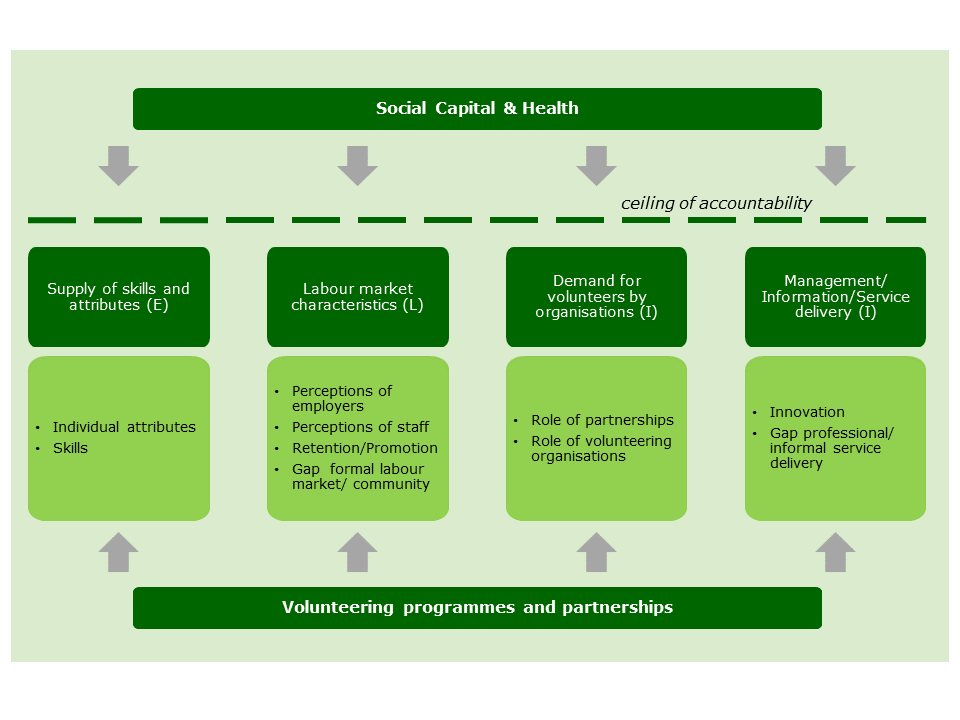Sign up to our newsletter Subscribe
Challenges and Solutions for Budget Impact Analysis of Gene Therapies

Sign up to our newsletter Subscribe

A new paper by OHE and Health Education England on the value of international volunteers’ experience to the NHS has been published in Globalization and Heath. OHE and Health Education England (HEE) recently completed research to quantify the benefits that…

A new paper by OHE and Health Education England on the value of international volunteers’ experience to the NHS has been published in Globalization and Heath.
OHE and Health Education England (HEE) recently completed research to quantify the benefits that returned international volunteers can bring to the NHS. This research helps demonstrate the sustainability of programmes supported by Global Engagement, an HEE programme which works with health partnerships to establish workforce and educational translation on a global scale to support the NHS. The research has just been published in Globalization and Health.
The paper seeks to identify the various benefits to the NHS from returned international healthcare volunteers and quantify those benefits in monetary terms. The outcomes from returned international volunteers, which have been identified as relevant from an NHS perspective, are linked to three key areas in a multisector analytical framework used by the World Bank to evaluate labour market programmes:

The monetary value of these outcomes is quantified through productivity indices which capture the economic value that achieving them has on the quality of the NHS labour force. This model is applied to a dataset of international volunteers from King’s College London and the Royal College of Paediatrics and Child Health, which placed 279 volunteers, mainly in sub-Saharan Africa, including during the Ebola outbreak in 2013-2016.
To understand the role and benefits of health partnerships, it is important to place the Global Engagement strategy of HEE within the global health strategy. The benefits from health partnerships have been described within the role of official development assistance and into the UK Aid strategy. This global health strategy is also linked to the current trends in NHS competencies and the importance of international volunteering outcomes within them.
Recent literature has identified outcomes reported by international volunteers and how these can be framed within NHS competencies recognised in UK professional development structures, including the NHS Knowledge & Skills Framework. Also, there is a recommendation to integrate volunteering within partnerships into NHS Continuing Professional Development frameworks. These professional competencies are being updated according to the underlying themes of international volunteering outcomes, that is, towards ‘global workforce’ strategy outcomes.
This paper presents a rationale for placing these global learning outcomes from international volunteering into a framework which emphasises changes in labour market outcomes for both the individual (e.g. skills and attributes) and the organisation (e.g. staff retention, innovation). The method used to monetise these outcomes is based on measures of quality-adjusted changes in NHS staff. This assumes the same staff configuration as in the pre-volunteering period but accounts for a quality improvement for returned international volunteers. This quality improvement is then valued as a productivity gain that would render a superior salary level within each staff category (doctors, nurses, and other support staff). Overall, we conclude that if the acquisition of volunteering outcomes is realised, the NHS can accrue a productivity increase of between 24% and 41% per volunteer, with a value ranging from £13,215 to £25,934 per volunteer.
Citation
Zamora, B., Gurupira, M., Rodés Sánchez, M., Feng, Y., Hernandez-Villafuerte, K., Brown, J. and Shah, K., 2019. The value of international volunteers experience to the NHS. Globalization and Health 15:31. DOI.
An error has occurred, please try again later.
This website uses cookies so that we can provide you with the best user experience possible. Cookie information is stored in your browser and performs functions such as recognising you when you return to our website and helping our team to understand which sections of the website you find most interesting and useful.
Strictly Necessary Cookie should be enabled at all times so that we can save your preferences for cookie settings.
If you disable this cookie, we will not be able to save your preferences. This means that every time you visit this website you will need to enable or disable cookies again.
This website uses Google Analytics to collect anonymous information such as the number of visitors to the site, and the most popular pages.
Keeping this cookie enabled helps us to improve our website.
Please enable Strictly Necessary Cookies first so that we can save your preferences!